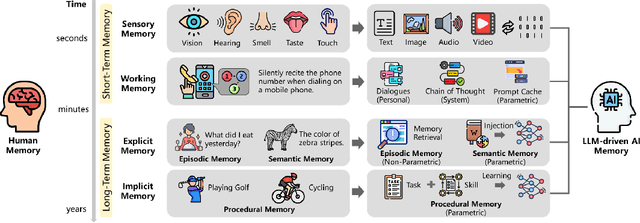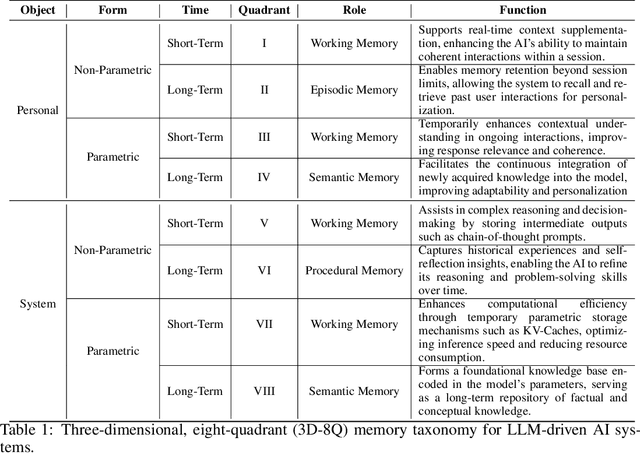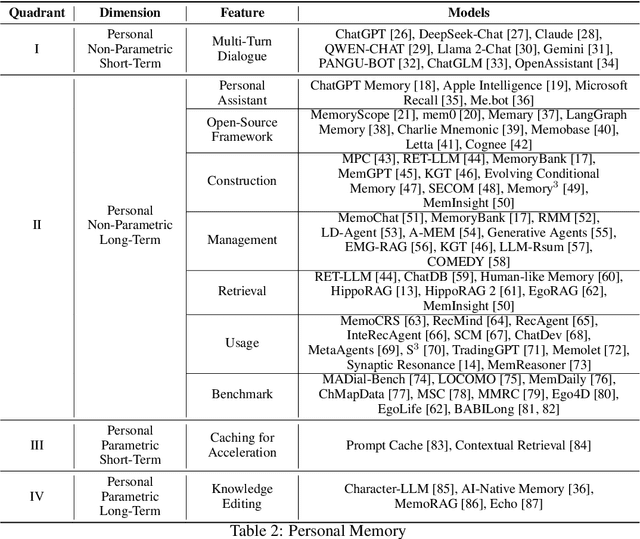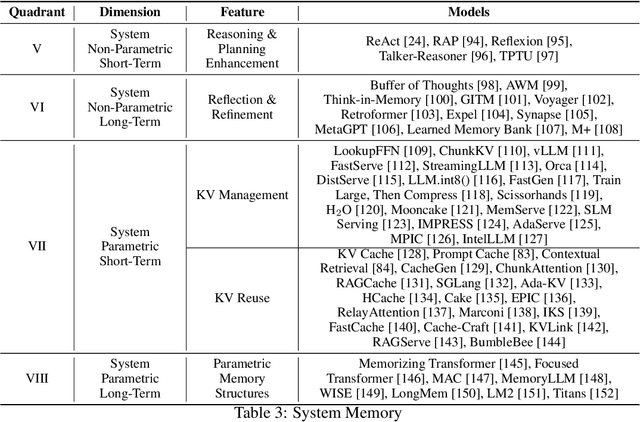Yichao Wang
To Search or Not to Search: Aligning the Decision Boundary of Deep Search Agents via Causal Intervention
Feb 03, 2026Abstract:Deep search agents, which autonomously iterate through multi-turn web-based reasoning, represent a promising paradigm for complex information-seeking tasks. However, current agents suffer from critical inefficiency: they conduct excessive searches as they cannot accurately judge when to stop searching and start answering. This stems from outcome-centric training that prioritize final results over the search process itself. We identify the root cause as misaligned decision boundaries, the threshold determining when accumulated information suffices to answer. This causes over-search (redundant searching despite sufficient knowledge) and under-search (premature termination yielding incorrect answers). To address these errors, we propose a comprehensive framework comprising two key components. First, we introduce causal intervention-based diagnosis that identifies boundary errors by comparing factual and counterfactual trajectories at each decision point. Second, we develop Decision Boundary Alignment for Deep Search agents (DAS), which constructs preference datasets from causal feedback and aligns policies via preference optimization. Experiments on public datasets demonstrate that decision boundary errors are pervasive across state-of-the-art agents. Our DAS method effectively calibrates these boundaries, mitigating both over-search and under-search to achieve substantial gains in accuracy and efficiency. Our code and data are publicly available at: https://github.com/Applied-Machine-Learning-Lab/WWW2026_DAS.
Exploring Recommender System Evaluation: A Multi-Modal User Agent Framework for A/B Testing
Jan 08, 2026Abstract:In recommender systems, online A/B testing is a crucial method for evaluating the performance of different models. However, conducting online A/B testing often presents significant challenges, including substantial economic costs, user experience degradation, and considerable time requirements. With the Large Language Models' powerful capacity, LLM-based agent shows great potential to replace traditional online A/B testing. Nonetheless, current agents fail to simulate the perception process and interaction patterns, due to the lack of real environments and visual perception capability. To address these challenges, we introduce a multi-modal user agent for A/B testing (A/B Agent). Specifically, we construct a recommendation sandbox environment for A/B testing, enabling multimodal and multi-page interactions that align with real user behavior on online platforms. The designed agent leverages multimodal information perception, fine-grained user preferences, and integrates profiles, action memory retrieval, and a fatigue system to simulate complex human decision-making. We validated the potential of the agent as an alternative to traditional A/B testing from three perspectives: model, data, and features. Furthermore, we found that the data generated by A/B Agent can effectively enhance the capabilities of recommendation models. Our code is publicly available at https://github.com/Applied-Machine-Learning-Lab/ABAgent.
Doc-Researcher: A Unified System for Multimodal Document Parsing and Deep Research
Oct 24, 2025Abstract:Deep Research systems have revolutionized how LLMs solve complex questions through iterative reasoning and evidence gathering. However, current systems remain fundamentally constrained to textual web data, overlooking the vast knowledge embedded in multimodal documents Processing such documents demands sophisticated parsing to preserve visual semantics (figures, tables, charts, and equations), intelligent chunking to maintain structural coherence, and adaptive retrieval across modalities, which are capabilities absent in existing systems. In response, we present Doc-Researcher, a unified system that bridges this gap through three integrated components: (i) deep multimodal parsing that preserves layout structure and visual semantics while creating multi-granular representations from chunk to document level, (ii) systematic retrieval architecture supporting text-only, vision-only, and hybrid paradigms with dynamic granularity selection, and (iii) iterative multi-agent workflows that decompose complex queries, progressively accumulate evidence, and synthesize comprehensive answers across documents and modalities. To enable rigorous evaluation, we introduce M4DocBench, the first benchmark for Multi-modal, Multi-hop, Multi-document, and Multi-turn deep research. Featuring 158 expert-annotated questions with complete evidence chains across 304 documents, M4DocBench tests capabilities that existing benchmarks cannot assess. Experiments demonstrate that Doc-Researcher achieves 50.6% accuracy, 3.4xbetter than state-of-the-art baselines, validating that effective document research requires not just better retrieval, but fundamentally deep parsing that preserve multimodal integrity and support iterative research. Our work establishes a new paradigm for conducting deep research on multimodal document collections.
Towards Multi-Granularity Memory Association and Selection for Long-Term Conversational Agents
May 26, 2025Abstract:Large Language Models (LLMs) have recently been widely adopted in conversational agents. However, the increasingly long interactions between users and agents accumulate extensive dialogue records, making it difficult for LLMs with limited context windows to maintain a coherent long-term dialogue memory and deliver personalized responses. While retrieval-augmented memory systems have emerged to address this issue, existing methods often depend on single-granularity memory segmentation and retrieval. This approach falls short in capturing deep memory connections, leading to partial retrieval of useful information or substantial noise, resulting in suboptimal performance. To tackle these limits, we propose MemGAS, a framework that enhances memory consolidation by constructing multi-granularity association, adaptive selection, and retrieval. MemGAS is based on multi-granularity memory units and employs Gaussian Mixture Models to cluster and associate new memories with historical ones. An entropy-based router adaptively selects optimal granularity by evaluating query relevance distributions and balancing information completeness and noise. Retrieved memories are further refined via LLM-based filtering. Experiments on four long-term memory benchmarks demonstrate that MemGAS outperforms state-of-the-art methods on both question answer and retrieval tasks, achieving superior performance across different query types and top-K settings.
Align-GRAG: Reasoning-Guided Dual Alignment for Graph Retrieval-Augmented Generation
May 22, 2025Abstract:Large language models (LLMs) have demonstrated remarkable capabilities, but still struggle with issues like hallucinations and outdated information. Retrieval-augmented generation (RAG) addresses these issues by grounding LLM outputs in external knowledge with an Information Retrieval (IR) system. Building on this foundation, graph-based RAG systems go a step further by retrieving subgraphs, which preserve the relationships between knowledge entities and provide more comprehensive context. However, graph RAG faces two challenges: (1) Retrieving relevant information introduces irrelevant nodes (especially in dense graph databases, where retrieval usually extends to adjacent nodes), and leads to overly lengthy inputs that hinder efficiency; (2) The representation gap between graph and language during generation with LLMs limits the ability to fully leverage graph structures for enhanced understanding. To address these limitations, we propose Align-GRAG, a novel reasoning-guided dual alignment framework in post-retrieval phrase. It first formulates a subgraph by retrieving nodes and edges. Then an Aligner is proposed to jointly optimizes a graph encoder with LLM-summarized reasoning. It achieves dual alignment of graph node and representation by leveraging KL divergence loss and contrastive loss, facilitating efficient pruning of irrelevant knowledge and establishing a unified semantic space. The Generator integrates the aligned graph data with LLM to produce coherent and accurate answers. Experiments on GraphQA benchmark across three tasks (including common sense reasoning, scene graph understanding, and knowledge graph reasoning) validate the effectiveness of our method. The code will be available upon accepted.
Process vs. Outcome Reward: Which is Better for Agentic RAG Reinforcement Learning
May 20, 2025Abstract:Retrieval-augmented generation (RAG) enhances the text generation capabilities of large language models (LLMs) by integrating external knowledge and up-to-date information. However, traditional RAG systems are limited by static workflows and lack the adaptability required for multistep reasoning and complex task management. To address these limitations, agentic RAG systems (e.g., DeepResearch) have been proposed, enabling dynamic retrieval strategies, iterative context refinement, and adaptive workflows for handling complex search queries beyond the capabilities of conventional RAG. Recent advances, such as Search-R1, have demonstrated promising gains using outcome-based reinforcement learning, where the correctness of the final answer serves as the reward signal. Nevertheless, such outcome-supervised agentic RAG methods face challenges including low exploration efficiency, gradient conflict, and sparse reward signals. To overcome these challenges, we propose to utilize fine-grained, process-level rewards to improve training stability, reduce computational costs, and enhance efficiency. Specifically, we introduce a novel method ReasonRAG that automatically constructs RAG-ProGuide, a high-quality dataset providing process-level rewards for (i) query generation, (ii) evidence extraction, and (iii) answer generation, thereby enhancing model inherent capabilities via process-supervised reinforcement learning. With the process-level policy optimization, the proposed framework empowers LLMs to autonomously invoke search, generate queries, extract relevant evidence, and produce final answers. Compared to existing approaches such as Search-R1 and traditional RAG systems, ReasonRAG, leveraging RAG-ProGuide, achieves superior performance on five benchmark datasets using only 5k training instances, significantly fewer than the 90k training instances required by Search-R1.
LSRP: A Leader-Subordinate Retrieval Framework for Privacy-Preserving Cloud-Device Collaboration
May 08, 2025Abstract:Cloud-device collaboration leverages on-cloud Large Language Models (LLMs) for handling public user queries and on-device Small Language Models (SLMs) for processing private user data, collectively forming a powerful and privacy-preserving solution. However, existing approaches often fail to fully leverage the scalable problem-solving capabilities of on-cloud LLMs while underutilizing the advantage of on-device SLMs in accessing and processing personalized data. This leads to two interconnected issues: 1) Limited utilization of the problem-solving capabilities of on-cloud LLMs, which fail to align with personalized user-task needs, and 2) Inadequate integration of user data into on-device SLM responses, resulting in mismatches in contextual user information. In this paper, we propose a Leader-Subordinate Retrieval framework for Privacy-preserving cloud-device collaboration (LSRP), a novel solution that bridges these gaps by: 1) enhancing on-cloud LLM guidance to on-device SLM through a dynamic selection of task-specific leader strategies named as user-to-user retrieval-augmented generation (U-U-RAG), and 2) integrating the data advantages of on-device SLMs through small model feedback Direct Preference Optimization (SMFB-DPO) for aligning the on-cloud LLM with the on-device SLM. Experiments on two datasets demonstrate that LSRP consistently outperforms state-of-the-art baselines, significantly improving question-answer relevance and personalization, while preserving user privacy through efficient on-device retrieval. Our code is available at: https://github.com/Zhang-Yingyi/LSRP.
From Human Memory to AI Memory: A Survey on Memory Mechanisms in the Era of LLMs
Apr 22, 2025



Abstract:Memory is the process of encoding, storing, and retrieving information, allowing humans to retain experiences, knowledge, skills, and facts over time, and serving as the foundation for growth and effective interaction with the world. It plays a crucial role in shaping our identity, making decisions, learning from past experiences, building relationships, and adapting to changes. In the era of large language models (LLMs), memory refers to the ability of an AI system to retain, recall, and use information from past interactions to improve future responses and interactions. Although previous research and reviews have provided detailed descriptions of memory mechanisms, there is still a lack of a systematic review that summarizes and analyzes the relationship between the memory of LLM-driven AI systems and human memory, as well as how we can be inspired by human memory to construct more powerful memory systems. To achieve this, in this paper, we propose a comprehensive survey on the memory of LLM-driven AI systems. In particular, we first conduct a detailed analysis of the categories of human memory and relate them to the memory of AI systems. Second, we systematically organize existing memory-related work and propose a categorization method based on three dimensions (object, form, and time) and eight quadrants. Finally, we illustrate some open problems regarding the memory of current AI systems and outline possible future directions for memory in the era of large language models.
A Survey of Personalization: From RAG to Agent
Apr 14, 2025Abstract:Personalization has become an essential capability in modern AI systems, enabling customized interactions that align with individual user preferences, contexts, and goals. Recent research has increasingly concentrated on Retrieval-Augmented Generation (RAG) frameworks and their evolution into more advanced agent-based architectures within personalized settings to enhance user satisfaction. Building on this foundation, this survey systematically examines personalization across the three core stages of RAG: pre-retrieval, retrieval, and generation. Beyond RAG, we further extend its capabilities into the realm of Personalized LLM-based Agents, which enhance traditional RAG systems with agentic functionalities, including user understanding, personalized planning and execution, and dynamic generation. For both personalization in RAG and agent-based personalization, we provide formal definitions, conduct a comprehensive review of recent literature, and summarize key datasets and evaluation metrics. Additionally, we discuss fundamental challenges, limitations, and promising research directions in this evolving field. Relevant papers and resources are continuously updated at https://github.com/Applied-Machine-Learning-Lab/Awesome-Personalized-RAG-Agent.
Joint Modeling in Recommendations: A Survey
Feb 28, 2025Abstract:In today's digital landscape, Deep Recommender Systems (DRS) play a crucial role in navigating and customizing online content for individual preferences. However, conventional methods, which mainly depend on single recommendation task, scenario, data modality and user behavior, are increasingly seen as insufficient due to their inability to accurately reflect users' complex and changing preferences. This gap underscores the need for joint modeling approaches, which are central to overcoming these limitations by integrating diverse tasks, scenarios, modalities, and behaviors in the recommendation process, thus promising significant enhancements in recommendation precision, efficiency, and customization. In this paper, we comprehensively survey the joint modeling methods in recommendations. We begin by defining the scope of joint modeling through four distinct dimensions: multi-task, multi-scenario, multi-modal, and multi-behavior modeling. Subsequently, we examine these methods in depth, identifying and summarizing their underlying paradigms based on the latest advancements and potential research trajectories. Ultimately, we highlight several promising avenues for future exploration in joint modeling for recommendations and provide a concise conclusion to our findings.
 Add to Chrome
Add to Chrome Add to Firefox
Add to Firefox Add to Edge
Add to Edge